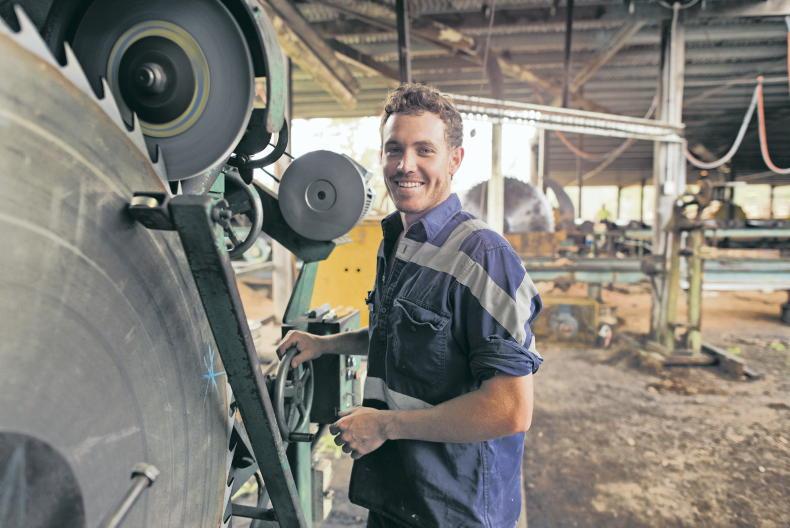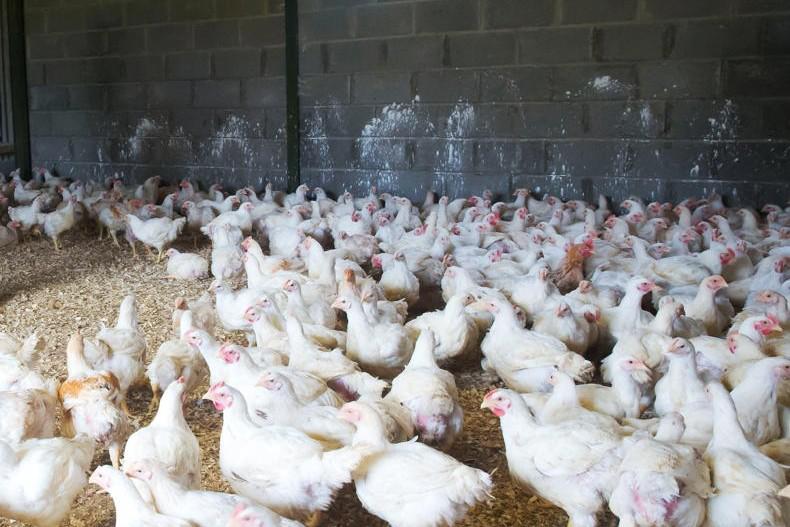Dear Money Mentor,
I am a retired dairy farmer in my 80s. My farm is leased out on a long-term lease to a very ambitious young farmer.
It is a 150ac holding with milking parlour, all in good condition.
My wife died a few years ago. Our farm was in joint names. I have three adult children – two sons and one daughter. I need to make a new will and I have been seriously considering it for some time. My existing will leaves everything to my deceased wife. The problem is, I am not quite sure what to do with the farm.
My youngest son (43) lives at home, he is very interested in farming and works with another farmer. My older son (46) is married and although has moved away for many years, is now interested in the farm. My daughter is married and works in the health services but I know she wishes to be included in my will. The problem is I am not sure what to do. The options I am considering are:
1 On my death, the farm is to be sold and the proceeds divided equally three ways or,
2 Will the farm to my son who lives at home and instruct that a certain amount of money is paid to my other son and daughter. He might have to sell land to do this.
I do not want a big family row after I have gone with none of my children speaking to each other. I would prefer to have it settled beforehand. I have not spoken directly to any of my children except the son that lives with me, but it always ends in an argument so I avoid the topic now. It is a constant cause of worry to me. I am also wondering could one of my adult children challenge my will and on what grounds could this happen?
I would appreciate any advice you could give me. Thanks in advance.
Regards,
Michael.
Dear Michael,
I am assuming you have a qualifying lease between yourself and the leasee signed by both parties. If so, I assume you are availing of the tax-free exempted income thresholds available for any lease from five years up to 15 years or more. This allows you to earn land lease income from €18,000 up to €40,000 per annum tax free. You do need to pay PRSI and USC on this income.
I agree with you that you need to make a new will as your spouse is now deceased – the beneficiary of your existing will.
A valid will must be in writing, signed and dated by two witnesses in your presence. It is best to complete and sign (execute) your will in your solicitor’s office so it will be legally binding.
The average cost is about €200 for a solicitor to draw up a simple will. If you wish a solicitor to administer your estate when you pass on, there will be a charge for that. Solicitors can charge a percentage of the total estate or a flat-rate fee for the administration. A good solicitor who charges a reasonable flat-rate fee is probably the best option.
Who will inherit the farm is a huge decision for you. It might be a start to have an informal family meeting, but that may not be possible, as you stated some conversations have ended in arguments already. If not, you might start the process by asking each adult child, individually, what their priority is and what they expect to inherit. You need to know their expectations.
Obviously your land is being farmed currently but not by your family. Do you wish the farm to continue in your family or not? Perhaps ask each family member where they wish to live, as I understand your youngest son is living at home with you, whilst the others live elsewhere. Fairness and transparency can go a long way in any decision to avoid hurt and conflict later.
Mediation may be a solution if you feel your family will not agree. Mediation can provide innovative solutions allowing better communication. It can also be a means of avoiding costly legal fees. The professional association for mediators in Ireland (The Mediators’ Institute of Ireland – MII) has a full database of mediators, available across the country which can help resolve disputes and avoid conflict. Contacting a mediator might be worthwhile to help you resolve the issue.
With regard to your question if a will can be challenged, yes it can. A child can challenge a will under Section 117 of the Succession Act 1965, if the child asserts that the testator (the person who made the will) failed in his moral duty to make proper provision for him/her.
There are also other grounds for challenging a will, such as the lack of capacity of the person who made the will, or undue influence being exerted on the testator while making the will.
Your youngest son lives with you so I assume he manages the household. If he doesn’t inherit the farm is it likely he will contest the will? Did he farm the land up to the time it was leased? You might need to consider these aspects beforehand.
I wish you all the best Michael, but do start the conversation now. Get some professional advice to help you make a decision. Your solicitor and a mediator would be a great start. CL
Read more
Money Mentor: organic farming may suit some farmers and prove beneficial
Money Mentor: Entrepreneur Relief and its benefit to farmers
Dear Money Mentor,
I am a retired dairy farmer in my 80s. My farm is leased out on a long-term lease to a very ambitious young farmer.
It is a 150ac holding with milking parlour, all in good condition.
My wife died a few years ago. Our farm was in joint names. I have three adult children – two sons and one daughter. I need to make a new will and I have been seriously considering it for some time. My existing will leaves everything to my deceased wife. The problem is, I am not quite sure what to do with the farm.
My youngest son (43) lives at home, he is very interested in farming and works with another farmer. My older son (46) is married and although has moved away for many years, is now interested in the farm. My daughter is married and works in the health services but I know she wishes to be included in my will. The problem is I am not sure what to do. The options I am considering are:
1 On my death, the farm is to be sold and the proceeds divided equally three ways or,
2 Will the farm to my son who lives at home and instruct that a certain amount of money is paid to my other son and daughter. He might have to sell land to do this.
I do not want a big family row after I have gone with none of my children speaking to each other. I would prefer to have it settled beforehand. I have not spoken directly to any of my children except the son that lives with me, but it always ends in an argument so I avoid the topic now. It is a constant cause of worry to me. I am also wondering could one of my adult children challenge my will and on what grounds could this happen?
I would appreciate any advice you could give me. Thanks in advance.
Regards,
Michael.
Dear Michael,
I am assuming you have a qualifying lease between yourself and the leasee signed by both parties. If so, I assume you are availing of the tax-free exempted income thresholds available for any lease from five years up to 15 years or more. This allows you to earn land lease income from €18,000 up to €40,000 per annum tax free. You do need to pay PRSI and USC on this income.
I agree with you that you need to make a new will as your spouse is now deceased – the beneficiary of your existing will.
A valid will must be in writing, signed and dated by two witnesses in your presence. It is best to complete and sign (execute) your will in your solicitor’s office so it will be legally binding.
The average cost is about €200 for a solicitor to draw up a simple will. If you wish a solicitor to administer your estate when you pass on, there will be a charge for that. Solicitors can charge a percentage of the total estate or a flat-rate fee for the administration. A good solicitor who charges a reasonable flat-rate fee is probably the best option.
Who will inherit the farm is a huge decision for you. It might be a start to have an informal family meeting, but that may not be possible, as you stated some conversations have ended in arguments already. If not, you might start the process by asking each adult child, individually, what their priority is and what they expect to inherit. You need to know their expectations.
Obviously your land is being farmed currently but not by your family. Do you wish the farm to continue in your family or not? Perhaps ask each family member where they wish to live, as I understand your youngest son is living at home with you, whilst the others live elsewhere. Fairness and transparency can go a long way in any decision to avoid hurt and conflict later.
Mediation may be a solution if you feel your family will not agree. Mediation can provide innovative solutions allowing better communication. It can also be a means of avoiding costly legal fees. The professional association for mediators in Ireland (The Mediators’ Institute of Ireland – MII) has a full database of mediators, available across the country which can help resolve disputes and avoid conflict. Contacting a mediator might be worthwhile to help you resolve the issue.
With regard to your question if a will can be challenged, yes it can. A child can challenge a will under Section 117 of the Succession Act 1965, if the child asserts that the testator (the person who made the will) failed in his moral duty to make proper provision for him/her.
There are also other grounds for challenging a will, such as the lack of capacity of the person who made the will, or undue influence being exerted on the testator while making the will.
Your youngest son lives with you so I assume he manages the household. If he doesn’t inherit the farm is it likely he will contest the will? Did he farm the land up to the time it was leased? You might need to consider these aspects beforehand.
I wish you all the best Michael, but do start the conversation now. Get some professional advice to help you make a decision. Your solicitor and a mediator would be a great start. CL
Read more
Money Mentor: organic farming may suit some farmers and prove beneficial
Money Mentor: Entrepreneur Relief and its benefit to farmers








SHARING OPTIONS